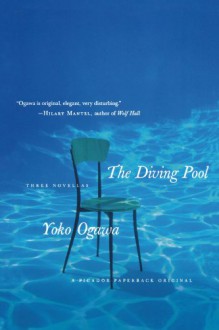
Ring (Ring Series, Book 1)
Author: Koji Suzuki
Translated by Robert B. Rohmer and Glynne Walley
A last minute decision forever alters the life of Kazuyuki Asakawa in this gripping story about a video of incongruous images delivering a death threat to the viewer. Four mysterious deaths in Tokyo, which are thought to be connected, piques the interest of Asawaka, a journalist. This is a race against time to solve the mysteries of the videotape.
It’s been quite a long time since I read any book from the horror genre. Reading this book reminded me of those days when I enjoyed watching horror movies all by myself, much to my mother’s wonder. Watching horror movies by myself wasn’t a choice, just in case you’re wondering. Whenever I suggested that we watch a horror flick, no one in the family was really interested (even when I’ve prepared the usual popcorn and drinks) so I’m left sweating and shivering alone.
Remember those times when the products of your imagination- something you can’t see, terrified you? Well, Ring did not fail to reawaken those old feelings of instinctual terror.
From the first few pages of the book, one becomes aware of an unsettling presence. A strange feeling engulfs you and when you try to shake it off, you just can’t. There is a terrific connection between metaphysical horror and unreality. Since this is a race against time, one can’t help but sense an impending catastrophe waiting to happen.
The videotape’s message of impending death would definitely terrify anyone. Some might dismiss this as a hoax, but of course, one can’t take any chances. Asakawa enlists his friend Ryuji’s help. Understandably, Asakawa grows increasingly wary, petulant and distraught as the seventh day nears.
As Asakawa strives to counter the videotapes curse he is also faced with a dilemma, for when he chooses to show this to anyone, that person might end up dead after seven days too. When Ryuji agrees to help, Asakawa can’t help but admire Ryuji’s courage. Not only that, Ryuji proves to be the deus ex machina throughout the novel. He steadily utilizes his connections and shows his brilliance throughout the novel. One can’t discount the fact that despite Ryuji’s peculiar character, he is loyal to his friend and dedicated, just as Asakawa is, to solve the mystery behind the videotape and avert an impending disaster. Every little success they encounter into unfolding the secrets of the videotape gives the reader a sense of relief but it is never complete and merely fleeting.
One of the strongest points of this dark and compelling book is the almost tangible and perceptible sense of sinister evil permeating the story. What is so scary is that the object of fear isn’t a physical being but rather an invisible entity that terrifies because of its unreality and ‘absence’ in the story.
The book touches on themes about metaphysical horrors that might be easily dismissed as preposterous. I would agree that the book is a concoction of somewhat fantastical and absurd elements but the writing is very convincing, so much so that the story becomes slightly plausible and even conceivable to even the most craven readers out there. If one expects bloodshed in this book then you are wrong. It is a very clever story, not the usual blood and gore you might expect from a horror book. The book expects you to maximize your imagination while it constantly spurns out the twists and turns that make this book so thrilling. The interest for the story never lags and it’s surprisingly stimulating. That’s saying a lot. I’ve read the usual horror books which weren’t very stimulating imagination wise, thanks to the lurid descriptions of horrifying events. This book expects you to use the most of your mental faculties. Not knowing what you are afraid of amplifies your imagination indeed.
Another thing worth sharing is the book’s striking stance to impress upon us the vastness of facts relating to the paranormal and subjects concerning clairvoyance or ESP. The author offered these facts with clarity, perhaps not to be believed immediately, but to aid a reader in swallowing much of the difficult paranormal stuff the book presented.
The author also didn’t fail to develop characters that we can sympathize with. The characters are distinct, never set aside and belittled despite the weighty subjects of the book. Their vulnerabilities and fears transfer to your own world making you aware of your own vulnerabilities.
I have left out a great deal of the story deliberately, but only to ensure a future reader of the experience of suspense and thrills this book has to offer. I assure you, there are many of those surprising details that will keep you on the edge of your seat.
A terrifying and suspenseful book about evil and horrors that are way beyond our comprehension. Expect a lot of twists and turns, and an ending that might surprise even the most avid fan of the horror genre.

 Log in with Facebook
Log in with Facebook 






